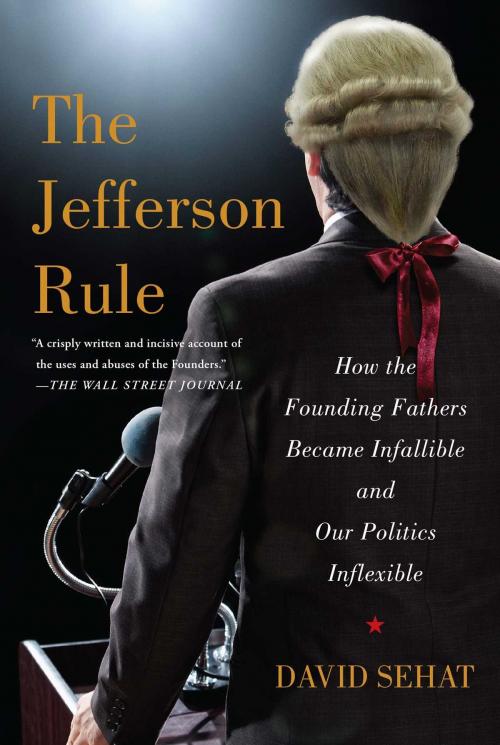The Jefferson Rule
How the Founding Fathers Became Infallible and Our Politics Inflexible
Nonfiction, Social & Cultural Studies, Political Science, Government, History, Americas, United States| Author: | David Sehat | ISBN: | 9781476779799 |
| Publisher: | Simon & Schuster | Publication: | May 19, 2015 |
| Imprint: | Simon & Schuster | Language: | English |
| Author: | David Sehat |
| ISBN: | 9781476779799 |
| Publisher: | Simon & Schuster |
| Publication: | May 19, 2015 |
| Imprint: | Simon & Schuster |
| Language: | English |
In The Jefferson Rule, historian David Sehat describes how everyone from liberals to conservatives, secessionists to unionists have sought out the Founding Fathers to defend their policies.
Beginning with the debate between Thomas Jefferson and Alexander Hamilton over the future of the nation, and continuing throughout our history—the Civil War, the World Wars, the New Deal, the Reagan Revolution, and Obama and the Tea Party—many politicos have asked, “What would the Founders do?” instead of “What is the common good today?” Both the Right and the Left have used the Founders to sort through such issues as voting rights, campaign finance, free speech, war and peace, gun control, and taxes, though those Fathers were a querulous and divided group who rarely agreed.
In this “sobering, informative study” (Publisher’s Weekly), Sehat shows why coming to terms with the past would be the start of a productive debate. The result is, simply put, “required reading for those desperate for sane, intelligent political arguments” (Kirkus Reviews, starred review). The Jefferson Rule “takes the reader through an engaging and insightful survey course in American history” (The Christian Science Monitor).
In The Jefferson Rule, historian David Sehat describes how everyone from liberals to conservatives, secessionists to unionists have sought out the Founding Fathers to defend their policies.
Beginning with the debate between Thomas Jefferson and Alexander Hamilton over the future of the nation, and continuing throughout our history—the Civil War, the World Wars, the New Deal, the Reagan Revolution, and Obama and the Tea Party—many politicos have asked, “What would the Founders do?” instead of “What is the common good today?” Both the Right and the Left have used the Founders to sort through such issues as voting rights, campaign finance, free speech, war and peace, gun control, and taxes, though those Fathers were a querulous and divided group who rarely agreed.
In this “sobering, informative study” (Publisher’s Weekly), Sehat shows why coming to terms with the past would be the start of a productive debate. The result is, simply put, “required reading for those desperate for sane, intelligent political arguments” (Kirkus Reviews, starred review). The Jefferson Rule “takes the reader through an engaging and insightful survey course in American history” (The Christian Science Monitor).















